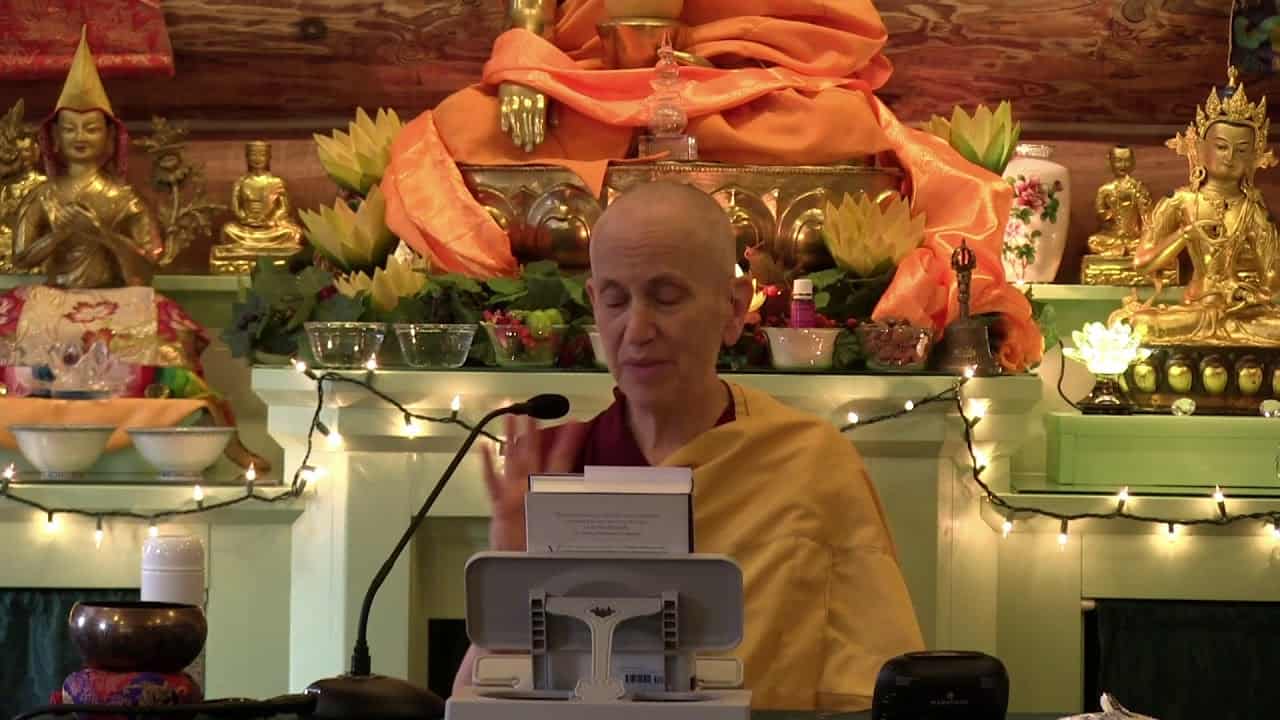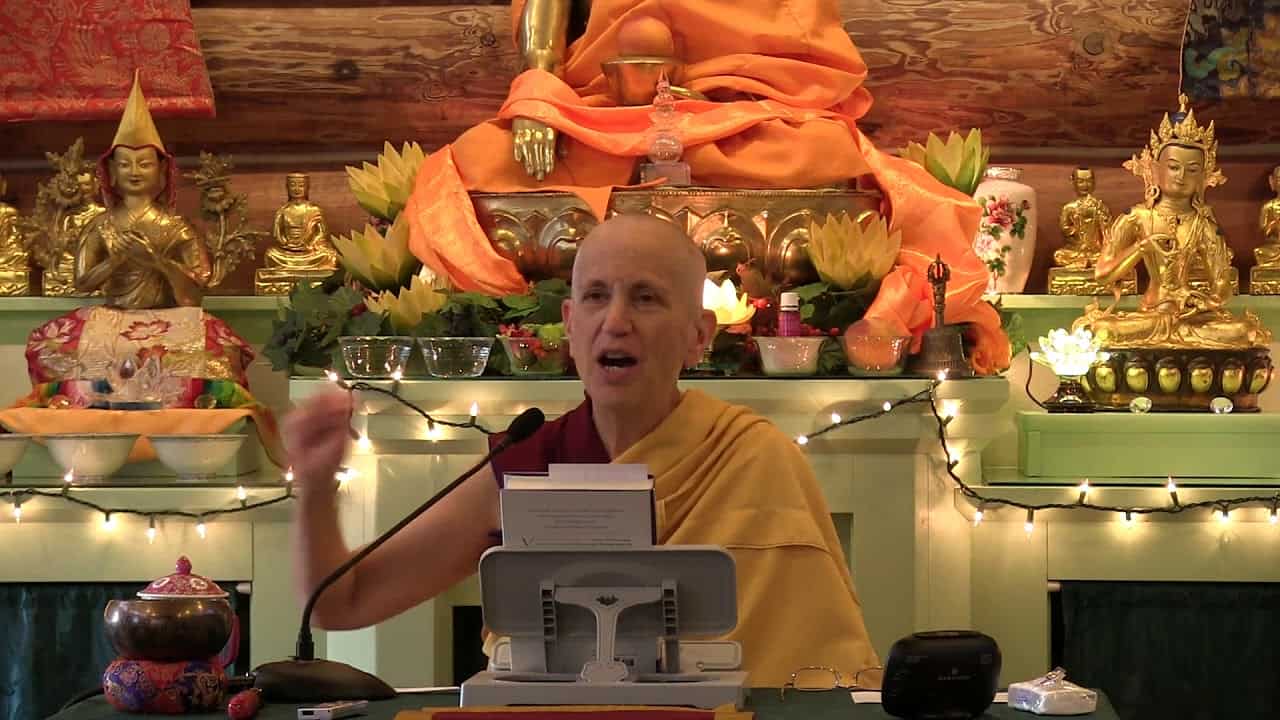Living with an awareness of impermanence and death
02 Foundation of Buddhist Practice
Part of a series of teachings given during a retreat based on the book The Foundation of Buddhist Practice given at Sravasti Abbey.
- The first seal: living with an awareness of impermanence
- Resistance to thinking about our own impermanence
- Reflecting on death to give us clarity
- Using impermanence to our advantage
- The second seal: all polluted phenomena are duhkha
- All conditioned things are unsatisfactory
- Aging, sickness, and death
- Understanding true duhkha
- Third seal: all phenomena are empty and selfless
- Refuting a permanently independent self or soul
- Refuting a self-sufficient substantially-existent person
The Foundation of Buddhist Practice 02: The four seals(download)
Contemplation points
- Spend some time working through many examples of how a cause has to change for the result to come. Why is this an important exercise?
- Consider your own impermanence. Rather than being morbid, we can use the fact of our own mortality to contemplate what is meaningful in life; what is important to do and not do. Take some time to really think about this: What is meaningful? What do you want to spend your life doing? Knowing you will die, what things don’t seem quite so important? What actions have you done that you want to abandon and purify?
- Understanding impermanence can be deeply empowering. Why? What does impermanence make possible?
- Consider the second seal: that all polluted phenomena are dukkha (unsatisfactory by nature). Is this true in your experience as you analyze? Go through examples of things, relationships, your own body, experiences… Are these things capable of providing the enduring happiness and security that you seek?
- How are the unsatisfactory circumstances in our lives related to our mind? What role does ignorance play? Why is it so important to reflect on this repeatedly?
- Why is it impossible for a permanent, unitary, independent self to exist? Investigate. Work through the reasoning.
- Now investigate a self-sufficient substantially-existent self. Can the self exist in this way? Why or why not?
Venerable Thubten Chodron
Venerable Chodron emphasizes the practical application of Buddha’s teachings in our daily lives and is especially skilled at explaining them in ways easily understood and practiced by Westerners. She is well known for her warm, humorous, and lucid teachings. She was ordained as a Buddhist nun in 1977 by Kyabje Ling Rinpoche in Dharamsala, India, and in 1986 she received bhikshuni (full) ordination in Taiwan. Read her full bio.


